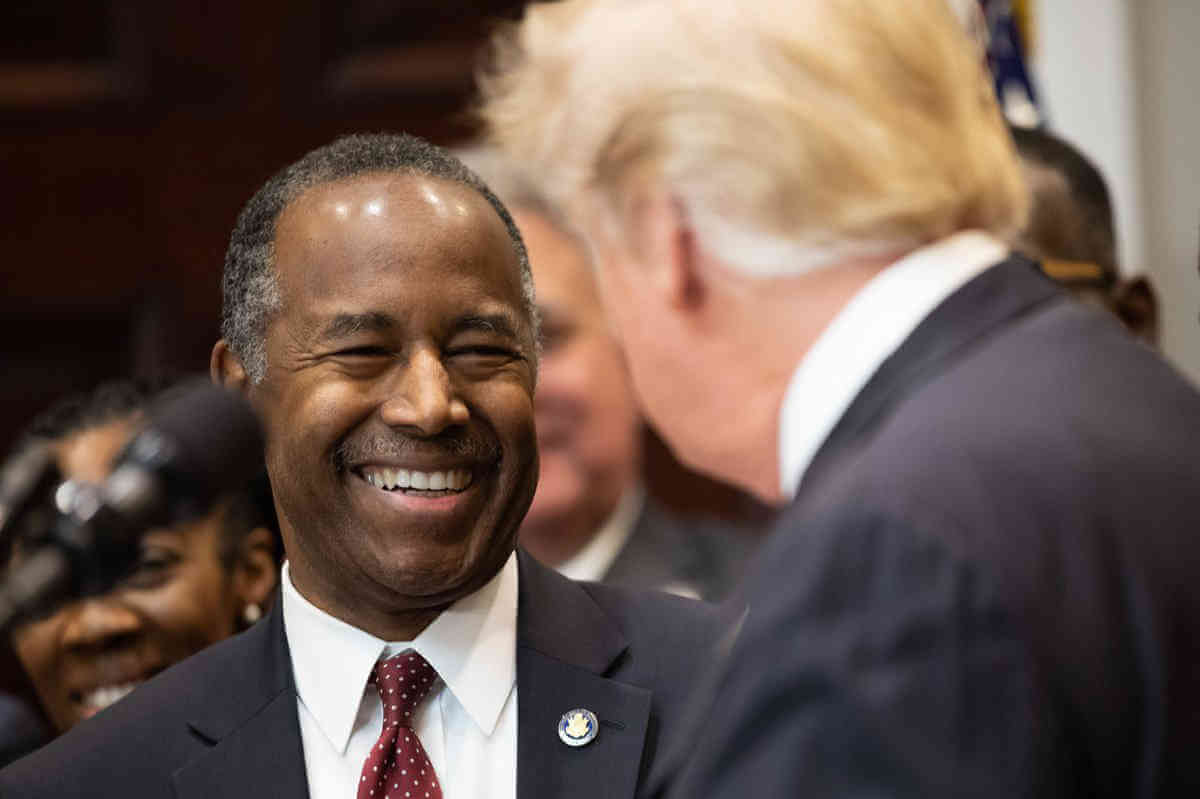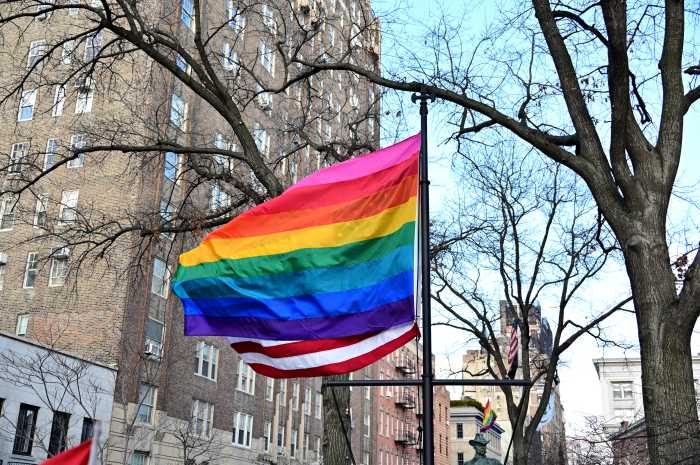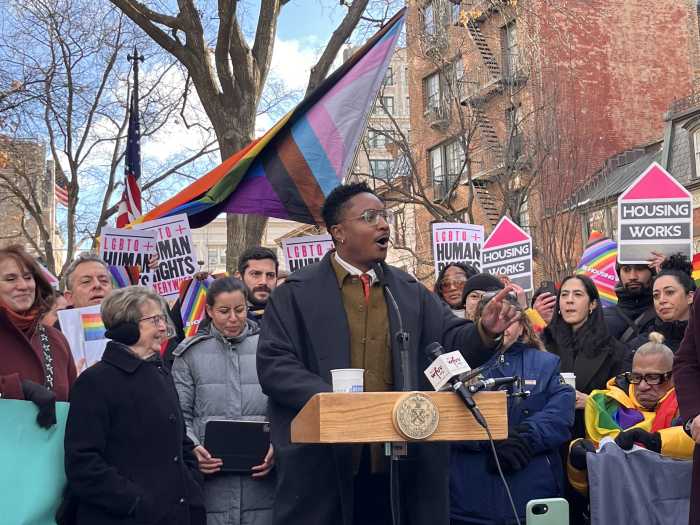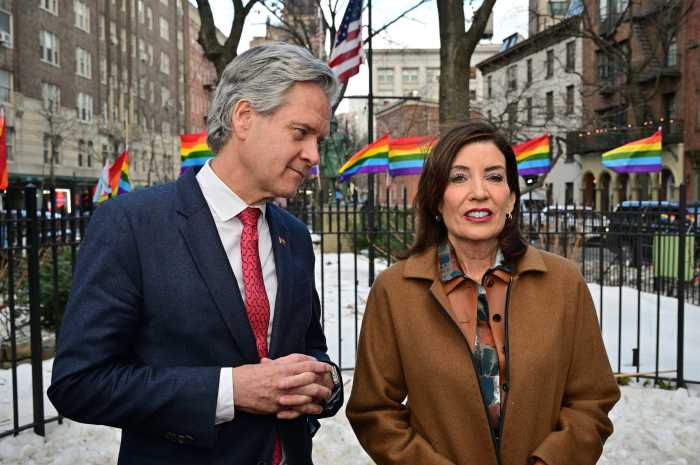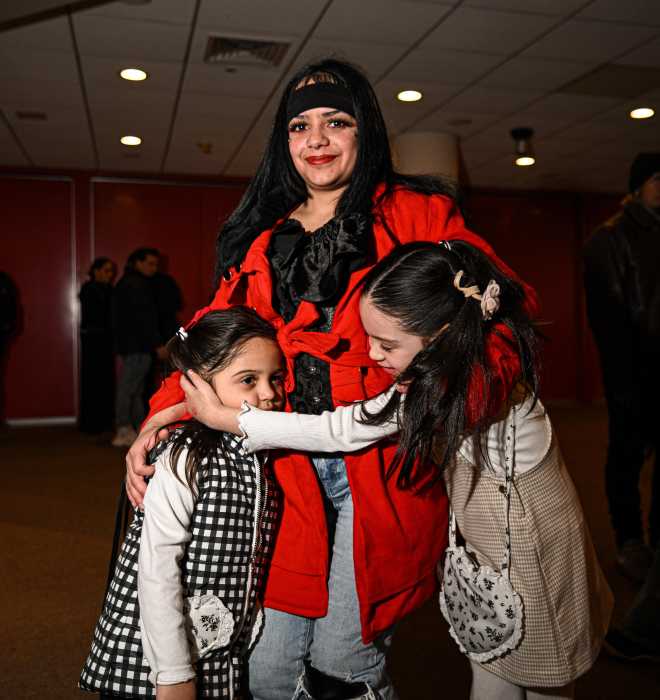In yet another attack on the LGBTQ community, the Trump administration’s Department of Housing and Urban Development (HUD) on May 22 rolled out a new proposed rule that would allow federally funded facilities to ban transgender and gender nonconforming people from shelters or force them to cohabit with people who do not share their gender identity.
The rule, summarized by the Office of Information and Regulatory Affairs, would give federally-funded facilities that permit single-sex or sex-segregated facilities the ability to cite numerous reasons in creating their own discriminatory policies, including privacy, safety, practical concerns, religious beliefs, the sex on a person’s ID, and gender identity. The policies would be permitted at temporary and emergency shelters, bathrooms, and facilities with sleeping quarters.
The proposal would allow for such policies to be implemented “consistent with state and local law,” which suggests that the rule would most negatively affect those who live in cities and states lacking nondiscrimination protections on the basis of gender identity.
The decision to move forward with the proposal came one day after members of Congress asked HUD Secretary Ben Carson on May 21 whether the agency had any plans to gut the Obama-era Equal Access Rule, which barred federal housing discrimination on the basis of sexual orientation or gender identity. Carson said that his job is to “make sure everybody is treated fairly” and added, “I’m not currently anticipating changing the rule.”
HUD did not immediately respond to requests for further information on the rule.
The latest move represents another stain on an administration that has increasingly sought to strip LGBTQ people of their rights in a variety of areas, from housing to healthcare and citizenship. Trump most visibly enacted a ban on transgender service members in the military, but has also pushed rules that allow healthcare workers to use religion or “conscience” as a reason to refuse care for LGBTQ people and women. The State Department, meanwhile, is actively trying to circumvent marriage and immigration laws to strip children of LGBTQ parents of their citizenship.
HUD’s specific targeting of trans people in shelters further marginalizes a demographic that is already disproportionately affected by homelessness. The proposal infuriated advocates like Kate Barnhart, the executive director of New Alternatives NYC, a drop-in center that helps LGBTQ homeless youth in New York City transition out of the shelter system to stable adult lives.
“Trans people are one of the populations most likely to be homeless,” Barnhart told Gay City News. “They put these vulnerable people out on the street.”
The Trump administration’s ongoing attacks on the LGBTQ community have grown to become so expansive that Barnhart’s organization has increasingly had to explain the ramifications of them for clients to keep them aware of how the policies could affect them.
“There’s no reason to do this,” Barnhart said of the latest proposal. “They’re not saving money, there’s nothing that would be accomplished by doing this. The only reason is to be cruel.”
Kiara St. James, the executive director of the New York Transgender Advocacy Group, similarly blasted the Trump administration, saying the president “will go to no end to denigrate and deny our national trans family’s basic dignity.”
She added, “Regardless of ones identity, it is a scourge on all of our humanity to deny the most vulnerable among us basic shelter.”
Like other proposed rules, HUD’s plan will eventually enter a customary commenting period during which people are allowed to voice feedback before it is officially approved.

